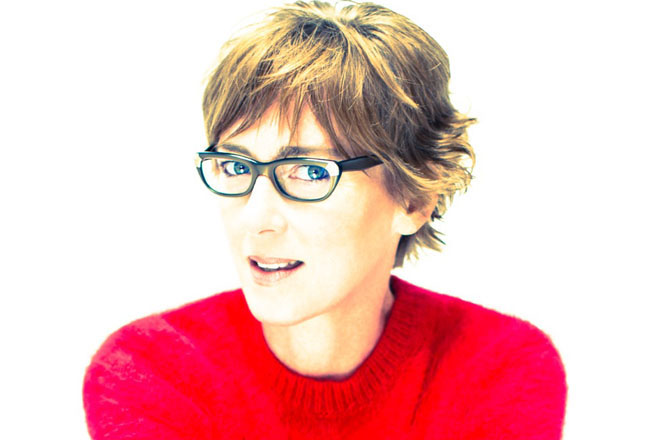
VIDEO FEATURE & WEB-EXCLUSIVE INTERVIEW
Musician: JONATHA BROOKE
Song: “Midnight Hallelujah”
Songwriters: Jonatha Brooke & Mark Batson
Video: Directed & Produced by Nigel Dick
Jonatha Brooke is an incredibly talented singer, songwriter, guitarist and musician whose songs have so much tuneful melody, rhythm, color and character. When you hear her sing, you immediately know her songs should be in heavy rotation on every major radio station in all markets of the country. Her songwriting is incisive and the poetry of her words cuts to the heart of the ideas she coveys so effectively in each verse and chorus. Her guitar work, especially her chord choices and however she invents them, is truly otherworldly. The combination reveals a song that leaves the listener in awe while making you want to move your feet and your whole body with every powerful down beat.

In recent years, Brooke extended her creative palette by writing and performing a powerful one-woman musical, My Mother Has 4 Noses, about the struggles and lessons she learned while taking care of her mother with dementia through the final two years of her life. That journey has brought her to this new insightful album.
In the 11 new tracks of Midnight. Hallelujah., Jonatha Brooke brilliantly balances the soulfulness of her songs with rock, pop and jazz inflections, while maintaining thought-provoking lyrics.
For Brooke, songwriting has to flow naturally, and she says “I don’t believe in forcing a song into existence.” Brooke easily admits that she usually does everything she can to avoid sitting down and writing. She says, “The irony is that even after 12 records, it doesn’t get easier.” Oddly enough, she enjoys working with deadlines—and a little pressure. She feels she can be more effective with time constraints. She says, “Songwriting has to flow naturally. I have to just let it happen. And when it does, I’m at the whim of the muse.”
Midnight. Hallelujah. was primarily recorded at Sweetwater Studios in Ft. Wayne, Indiana. Produced by Brooke along with Mark Hornsby, Phil Naish, and Eric Bazilian, the songs cover a wide sonic landscape and feature themes of faith, love, and addiction. The stellar team at Sweetwater Studios included Nick D’Virgilio on drums, Don Carr on guitar, Dave Martin on bass and Phil Naish on keyboards.
A couple of weeks ago, we featured her song “Put the Gun Down.” Today, we feature her video “Midnight Hallelujah” and a web-exclusive interview where Jonatha Brooke discusses songwriting and her creative process, her love for the kalimba, and her memorable journey over the past 30 years of making amazing music that touches the heart and moves the soul.
JONATHA BROOKE Web-Exclusive Interview
with M Music & Musicians magazine publisher, Merlin David
How did the idea of the song “Midnight Hallelujah” come to you?
I actually got the idea while I was still caring for my mom. I moved my mother in with me in 2010—she had dementia. She was an amazing Mom, and she passed away in 2012. The Bible, prayer, the religion I was raised in were her daily touchstones, her solace. But I’ve always struggled with it. You can’t argue with dementia, so I started arguing with myself. What is faith? Why so much hypocrisy among “faithful.” Then I got obsessed with combining that clash of faith and carnal love into one sexy chorus!
Did this experience strengthen your faith—or help you understand what faith is?
Shepherding my Mom through such intense physical and emotional struggles brought us both to what is to me the very elemental level of faith—love. Mom was so devoted to prayer. She relied on prayer for healing for most of her life, but when it failed, I stepped in and had to make the hard decisions. Dementia really strips it down. What mattered in the end? Human love, human touch, the smell of the cocoa butter lotion, her favorite cream of wheat cereal, listening to Andrea Bocelli. These were the things that replaced faith in the end.
What is your creative process for writing songs?
I have a gazillion voice memos on my phone, and I always go back and reference those ideas. I hate to admit it, but after all these years, I am still a loose cannon of ideas and methods. I avoid writing like the plague during some stretches, and then sometimes I go deep in and can barely surface for anything else. It almost always starts with an inkling of a lyrical idea, the tickle in the pit of my belly that I might be on to something, a really cool guitar lick in a new tuning.
How do you keep song ideas fresh—and continue to think of new ideas?
I am obsessed with books. For me it’s all about reading—because really, my life isn’t all that fascinating. (Laughs) Fiction, non-fiction, poetry, the daily newspaper. There are so many great stories, turns of phrase leaping off pages into my songs. I can’t help it. Both my parents were writers. My brothers are writers. Words are the family trade.
How has co-writing shaped your music?
I am still a very reluctant co-writer. Although, there are a few co-writes on this record. I love writing with Eric Bazilian because we have a blast and he doesn’t mind how bossy I am. (Laughs) Mark Batson is a treat because he has such a broad musical palette. In the end, for better or worse, I’m happiest in my own little room—making up my weird chords and progressions and odd meters. So the co-writing is good for me. It gets me out of my precious corner—into new stomp and snarl territory.
Did you want to co-write, or did you get thrown into it. Seems like you like it.
There are very few co-writes, and very far between. Some of these co-writes began a few years ago. Most of them were in the hopper. The two Batson songs started two years ago when I was writing for the Dixie Chicks. They ended up with another song for Courtyard Hounds. And Eric Bazilian—I could co-write with him any time.
Your words are crafted so well (like “religion” and “sin” almost in the same breath). Does this flow easily or take a lot of rewriting?
The best words simply appear. You just get out of the way, and hope you haven’t borrowed or stolen by mistake. (Laughs) There’s always a process of edit, weed, synthesize, make better. But if it’s too harrowed or sticky, it’s often best to set a lyric aside until the intention is clear. Pummeling words into submission has never been productive for me.
How do you do such a fantastic job of balancing rock, pop, jazz with the soulfulness of your songs—while maintaining though-provoking lyrics?
That’s an amazing compliment. Thank you. I have no idea! (Laughs) I think my influences are broad, and my standards are really high. So each of the elements I bring to the table has to be top notch to sustain me. I’ve been lucky enough to work with some of the best musicians in the world. So they kick my ass, and then I get better. In some ways I’m just now getting to a steady confidence. And whether it’s vocally, harmonically or lyrically—there has to be a level of truth or people sniff out the bull.
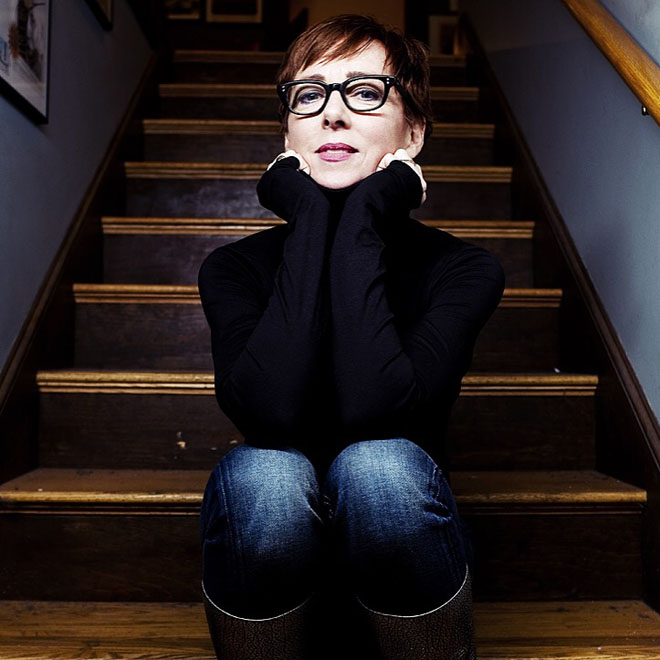
Tell us one experience where something unique inspired you to write a song.
One of the new songs, “Hashtag Lullaby,” was inspired by a book called Ghettoside. Jill Leovy, a Los Angeles journalist, spent almost 10 years chronicling the work of inner-city detectives solving drug murders, gang murders, kids killing kids—the unsung, untold lives. One detective in particular was devoted to his work—despite its harrowing, thankless, relentless toll. He told her simply: “Everybody was somebody’s baby.” Even though some of the murders would go unsolved—people too scared to step up and talk—he carried on, determined to give those mothers answers.
What songwriting tip would you like to offer?
I say this in my songwriting workshops all the time. You must sing it, the way you would say it. Walk around—find a rhythm, a meter, some kind of cadence that isn’t just the same thing you’ve tried a million times. Hone it, pace it, talk to it. Speak it first. Hum it. Don’t fence it in. Get it in your body. Then, it will feel right when you locate its melody, its tempo, its key. For me, singing/writing is visceral, physical. When the song is a keeper, you feel it in your bones. Oh, and if there’s a really important word, do not deny the downbeat—say it on the one!
How does where you live (New York, LA, Nashville) or travel influence your music?
I think the only and best influence of living in New York is there are that many more distinctive voices here. There are all sorts of collaborations waiting to happen. That’s exciting. Traveling gets you out of your comfort zone and throws new stories your way. But I do think that the writing part can happen anywhere. Coffee. Guitar. Pajamas. Couch. Done.
Who encouraged you to play different instruments, and how old were you?
My family is pretty musical—trumpet, bagpipes, piano. But it was my father who bought me a guitar for Christmas—when I was 12. I was infatuated with my camp counselor, Mindy Jostyn (she played with John Mellencamp and the Hooters), and I wanted to be like her. From there, I would pick up new toys along the way. I played by ear—piano, bass. When I wanted a very specific part, kalimba—because it’s such a haunting, cool sound (and Earth, Wind & Fire, believe it or not, was an influence.) Lately I’m obsessed with mandolin. For me it’s another way into writing. Sometimes, switching instruments throws you into the best unfamiliar territory. You surprise yourself with what you find there.
Who first inspired you to write songs?
My college professor, David Reck—sophomore year. I took a composition class, and it was like being struck by lightning. (Laughs) “Ohhhhh! Now I get it. I’m supposed to be doing this!”
Top 5 Musicians or Songwriters who inspired you to become a musician?
Elis Regina—top, top influence as a singer. Rickie Lee Jones, as a songwriter. Chopin, I will never get enough of the four Ballades. Joe Sample, for his compositional genius and the best grooves on the planet. Al Jarreau, for how he makes every single person in every single audience feel like he is singing directly to them.
Tell us how this new album evolved, and the perceived dichotomy within the title Midnight. Hallelujah.
I was thinking and struggling a lot with the aftermath of caring for my Mom through two very intense years. And that led into my one-woman show My Mother Has 4 Noses, an Off Broadway run, and two more years of that being my sole focus. She actually had four prosthetic noses. And we had fun with it. We’d make up songs, and she’d say, “Are you getting this down? You should make a Play out of it.” I had a lot to write about, I guess. Dark and Light. I wouldn’t have traded that time with my mother for anything. It truly was a love story I never expected to write. But I had a lot of stuff to pore through after she passed, dark and light. So I had to figure out who I was—without her, and what I wanted to say next. “Light Years” is about the conversations we’re still carrying on! Then, there are joyful, giddy songs on this record, “Really, Really Love” and “You and I,” and also dark treacherous ones “Put the Gun Down” and “I’ve Got Nothing.” Having lived and learned this much, this long, I am liberated. And I’m old enough and certain enough to say exactly what I want to say. I’ve always loved extremes that co-exist. Hence, Midnight and Hallelujah.
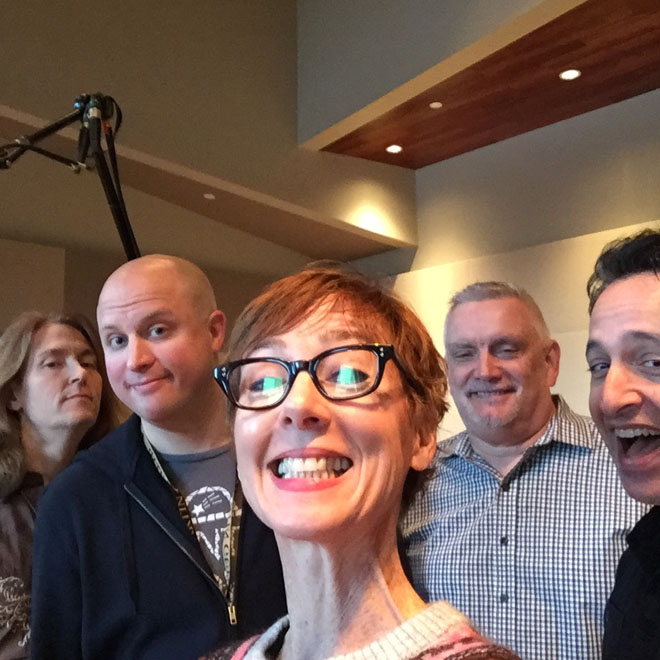
How was your Sweetwater Studios experience—working with Mark Hornsby and team?
It was a beautiful, painless process! (and that’s unusual!) Mark invited me to come be part of a recording workshop in their studio last December. I showed up with six songs to explore during the week I was there. We caught a vibe and had a blast. The musicians there brought so much amazing virtuosity to the table. And it rolled out from there. We spent another two weeks recording later last spring. I did some overdubs in New York, and suddenly we had this really cool record!
How do you balance so many genres of music—working with such a wide range of amazing musicians: from Joe Sample and Bruce Cockburn to Katy Perry and Chris Botti?
I think a good song is a good song. You can dress it up however you like. But if it holds up with a voice and a guitar (or a kalimba!) in a room, you’re good to go. The beauty of working with top-notch people is that their distinctive voices bring surprises that elevate a good song even further.
Where were you when you first heard one of your songs on the radio?
I was buying sneakers in a mall in Santa Fe, New Mexico—when “When Two and Two are Five” came on. I think I squealed like a 12 year old and ran to tell the saleslady.
Tell us about a time when you shared the stage or recorded with a music hero.
I got to sing with Joe Sample on the main stage at the Montreux Jazz Festival. That was a “pinch me” moment. Recording with Steve Gadd and Christian McBride is beyond musical dreaminess. Opening for Paul Simon a couple years ago, also at Montreux, didn’t suck. It’s hard to choose. I’m a lucky girl.
What instrument/equipment can you not live without—that helps you write, record, perform?
I have a Casio Celviano piano that has a great feel, and great classic sounds. It’s my go-to writing axe, but I also have a smaller road version that I take everywhere. Casio has bailed me out so many times—thanks to Mike Martin. I did 70 Off-Broadway shows, and I made sure they saw the Casio name. Of course, my Olson guitar has become my sound. The Neumann M49 that I use on vocals. These are a few of the things that are essential to my feeling like myself, sounding the way I’m supposed to sound.
Any musicians or songwriters you’d love to work with in the future?
I’d like to hang out with Greg Wells again. It felt like we were just getting started when we wrote those Katy Perry songs. And I’d like to work with Jack White.
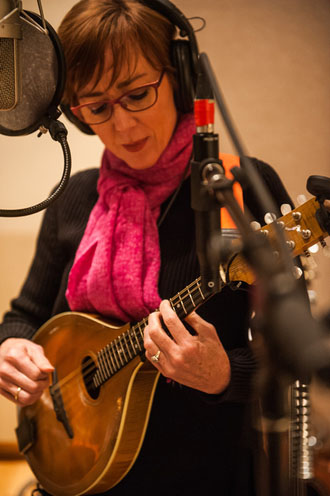 What PRO are you with—and how do they help you?
What PRO are you with—and how do they help you?
ASCAP has helped me so much over the years. Their timing is amazing. Often I’ll be scraping bottom, and an ASCAP check will show up and bail me out. And they have special awards set up for us middle class artists who are working our butts off, but aren’t on Top 40 radio.
Tell us about working with a legend like Bob Clearmountain—not only mixing your projects, but also recording/tracking you.
Bob and I think alike. We hear things alike after all these years working together. Often, when we’re tracking or mixing, I’ll be sitting in the back listening, and before I can say, “I think we need to double the acoustic,” or “can we pan the accordion to the right and throw some juice on it”—he will have done it. We crack up all the time about that telepathy.
Tell us about Bob Ludwig mastering your album. Do you work closely with that stage of the album?
Again, I am so lucky to have the two Bobs on my team. The two Bobs are like family for the past seven records. Mastering is usually a sacred day. If I can afford the dough and the time, I fly up to Portland and spend the day with Ludwig. We have lunch, tweak our mixes. It’s heaven being so close to the project through every stage. And it allows me to keep learning about every element of record making.
Best advice someone has given you.
“Just don’t worry about the mule going blind. You gotta sit in the wagon and hold the line.”
(My husband’s favorite saying.) Every time I get anxious about what is or is not happening, or how we will make ends meet, he says this. I think he originally got it from Al Jarreau’s dad. Pat [Rains] managed Al from the very beginning until about 1997.
What’s next? Tour? Festivals? More writing? Studio?
Yes! All of it. And I’m also working on two musicals as we speak. I’m devoted to finishing Quadroon, the one I was working on with Joe Sample when he passed. And another one, working title Switched, with playwright Geoffrey Nauffts and director Sheryl Kaller. I’m going into writing mode in November/December on both of those.
What are your Top 5 favorite albums of all time?
Weird but true:
Stompin’ at the Savoy—Live (1983) – Rufus and Chaka Khan
Elis & Tom (1974) – Antonio Carlos Jobim & Elis Regina
Lovesexy (1988) – Prince
The Magazine (1984) – Rickie Lee Jones
Four Ballades – Chopin – any recording. I like hearing different interpretations.
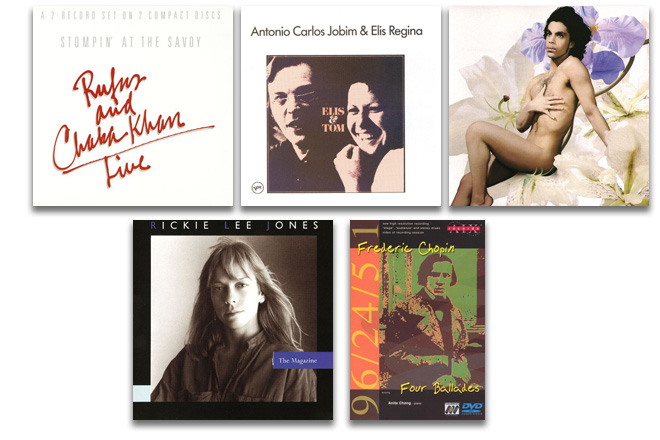
Where can your new fans get more info and stay updated?
Pledgemusic.com/projects/jonathabrookealbum
‘Jonatha Brooke brilliantly balances the soulfulness of her songs with rock, pop and jazz inflections, while maintaining thought-provoking lyrics.’

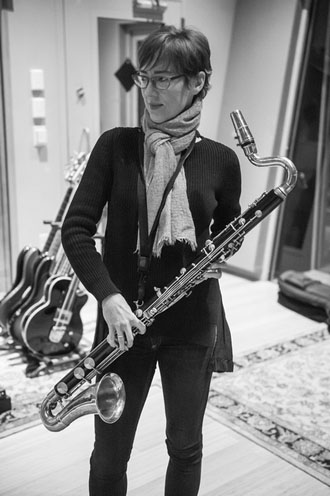



comment closed